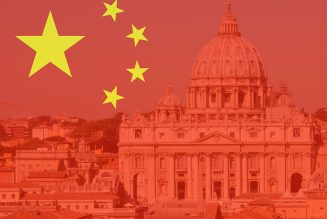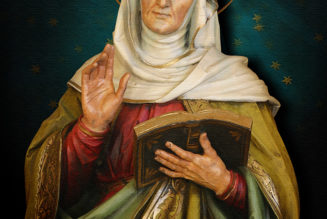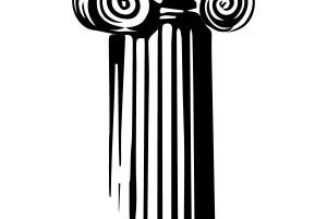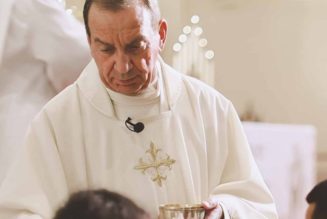By Dr. Jeff Mirus ( bio – articles – email ) | Feb 29, 2024
Sometimes the news can appear to be just plain strange. Sometimes the point becomes clear on further reflection. Sometimes it doesn’t. And sometimes it is clear that the figures in the story are missing the point altogether.
Just for fun, I’ve decided to compile ten examples of the strangeness of some very recent Catholic news:
- Church mediates truce in Mexican drug-cartel conflict: There is no reason Church leaders shouldn’t attempt to protect public safety in cases like this, if they can. But at first glance the story appears bizarre. That the Church may be able to reduce murderous violence without being able to reduce the sins that underlie it is not really inconceivable in a topsy-turvy world. But the whole situation is just plain incongruous.
- India’s bishops urge voters to keep country secular: This hardly sounds like a recipe for Christian perfection. But then Catholics constitute just 1.5 percent of India’s population, with Christians overall accounting for 2.3 percent. By contrast, India is 80% Hindu—a religion which is grotesquely, violently, and even demonically pagan. In other words, politics remains the art of the possible.
- Vatican newspaper rues damage to ocean from Ghana’s dumping of used clothes: Yes, believe it or not, this is an ecological problem. But is this really a front-page story for the Pope’s own newspaper—overshadowing, as our story mentions, special coverage of the second anniversary of the Russian invasion of Ukraine? Perhaps this is why L’Osservatore Romano, under Pope Francis, offers us such an astonishing (using the word advisedly) Catholic witness….
- End to celibacy could attract more men to priesthood: Cardinal Hollerich: While priestly celibacy is not mandated by God, it is a great clarifier for those who are confused about their vocations, and in fact even the Orthodox demand it of bishops. Surely the universal tradition of emphasizing the disadvantages of combining Matrimony with Holy Orders represents a kind of Divine value—an emphasis which at least cautions against conflicting commitments, however noble both may be. We must also ask why, when faith is weak in a particular culture, liberal prelates so frequently advocate for reduced demands. Indeed, based on some of his prior remarks about the outdated anthropology underlying the Church’s opposition to homosexuality, one may justly wonder if the Cardinal has other ways in mind of broadening the appeal of the priesthood.
- Report: Cardinal calls for ‘permanent’ dialogue with Freemasons: To quote from my previous (and more strenuous) commentary (What happened to the Christianity of the apostles?), “Nowhere in Scripture…will you find a spirit of ‘dialogue’ except with those who had a serious interest in the truth. You will not find study groups set up to probe error for its vestiges of truth; nor will you find joint statements to emphasize where opposing groups agree so that they can disagree in peace.” Let’s just call this recommended reading!
- Gay activists demand apology from New York cathedral: This is a perfect example of what you can do (without being laughed out of town) if you are part of the in-group. A group of LGBTQ++++ activists arranges for a quiet funeral of a trans-activist in St. Patrick’s Cathedral with the intention of staging a blatant mockery of Catholicism and, when their “service” is cut short, demands that the Archdiocese apologize for “painfully dismissive and exclusionary language.” Christians must never forget that civic acceptability always tracks the dominant culture.
- Vatican spokesman: Ratzinger CDF document is ‘important precedent’ for Fiducia Supplicans: Perhaps I’m cheating, but this is another “in case you missed it” moment. In my February 13th commentary Hypocrisy in opposition to Fiducia supplicans?, I pointed out that almost nobody objected to the distinction between liturgical and personal blessings (indeed, probably the whole Church has always taken this for granted). The issue with Fiducia supplicans is not the propriety of personal blessings, but the propriety of blessing same-sex couples as couples—in other words, there is a responsibility to avoid blessing same-sex coupling, or any other objective evil. The Vatican needs to stop playing games with Pope Benedict’s alleged precedent, which has nothing to do with the problem at issue.
- France advances pro-abortion amendment to constitution: The confusing thing about this story is that the best argument our writers could find to represent Archbishop Michel Aupetit’s denunciation of this pending constitutional amendment was that the amendment threatens the conscience rights of health-care workers. I hope he had more to say (and he did, in fact, say that “France has hit rock bottom”), but there are, in addition to consciences, actual lives at stake.
- An online program forms hundreds of lay spiritual directors: This story comes not from our Catholic World News service but from my local diocesan newspaper—and Arlington is a great diocese with a fine newspaper. But in the emailed announcement which included this story, there was a picture of what appeared to be graduates of this program, and the picture was of a long line of women. I hope it is not a sign of chauvinism that female spiritual direction of men is a foreign concept to me; perhaps more to the point, a training program for spiritual directors which attracts primarily females, if it does attract mainly females, is somewhat strange to me. In fact any formal spiritual direction from the non-ordained or the non-consecrated seems very strange to me. But what is most strange of all is the reduction of “spiritual direction” to a degree program. Again, call it just an uneasiness, but I can’t help but think that something about this manufacture of spiritual directors misses a vital spiritual point—though I am open to learning that it is really I who have missed it.
- ‘Demos II’—identified as cardinal—writes ‘profile of the next Pope’: You may remember that the original anonymous Catholic insider and commentator called Demos was later revealed to be the redoubtable George Cardinal Pell. But Cardinal Pell died about thirteen months ago, on January 10, 2023. The name “Demos”, of course, is drawn from the Greek word for the ordinary people of an ancient Greek city state. Cardinal Pell wished to represent the faithful in the pews—or more accurately, their Catholic sense, which is the sensus fidelium. Happily, Demos is back as Demos II—a cardinal who really wishes to represent Christ. And as the Catholic people might most truly say: If the King is dead, then long live the King.
Sound Off! CatholicCulture.org supporters weigh in.
All comments are moderated. To lighten our editing burden, only current donors are allowed to Sound Off. If you are a current donor, log in to see the comment form; otherwise please support our work, and Sound Off!










